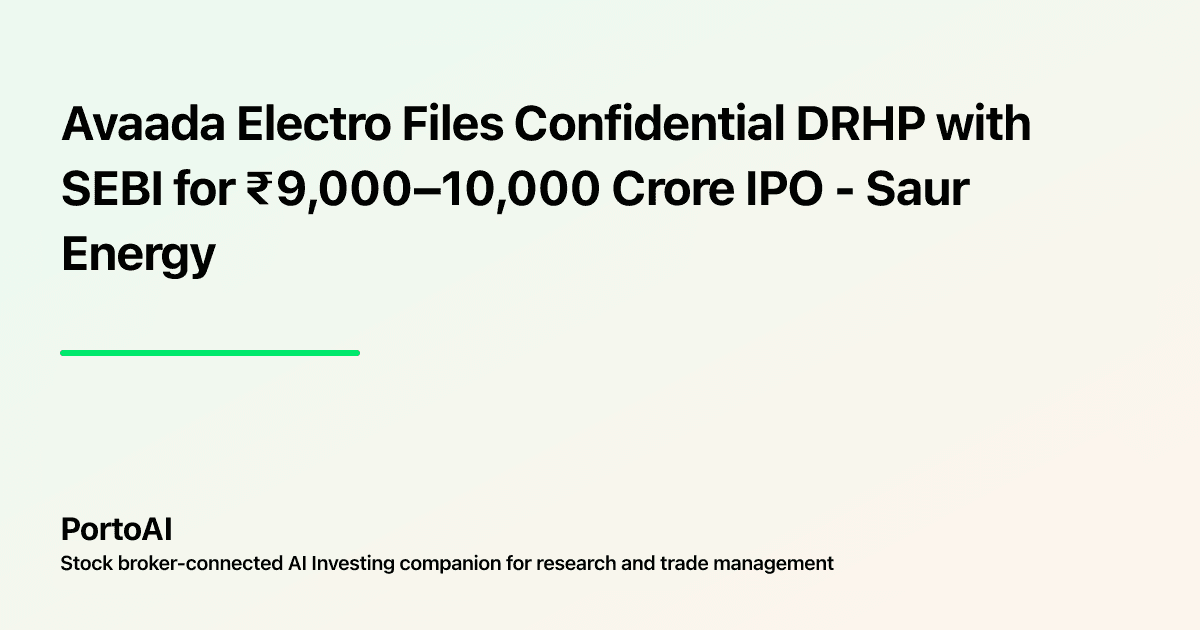How Does Inflation Impact Indian Stock Markets & Your Investments?

Venkateshwar Jambula
Lead Market Researcher
5 min read
•Published on September 10, 2024
•Understanding Inflation's Impact on the Indian Stock Market
The modern financial landscape is complex, with data and analysis increasingly guiding investor sentiment over purely emotional responses. Inflation, a key economic indicator, plays a pivotal role in shaping market dynamics. While traditionally viewed as a sign of economic distress, a nuanced understanding reveals its multifaceted impact on investment portfolios, particularly within the Indian stock market.
What is Inflation?
In its simplest form, inflation is the rate at which the general level of prices for goods and services is rising, and subsequently, purchasing power is falling. For instance, if an item cost ₹100 last year and now costs ₹110, the inflation rate is 10%. This erodes the real value of money over time.
Key Drivers of Inflation:
- Demand-Pull Inflation: Occurs when aggregate demand in an economy outpaces aggregate supply. This often happens when incomes rise, leading to increased consumer spending and a subsequent scarcity of goods and services.
- Cost-Push Inflation: Arises when the cost of production increases due to factors like rising raw material prices, higher wages, or increased taxes. Businesses pass these higher costs onto consumers, leading to price hikes.
Inflation's Influence on Indian Stock Markets
Stock prices are inherently driven by supply and demand, which are influenced by a myriad of economic, social, and political factors. Inflation is a significant factor that impacts investor behavior and, consequently, market valuations.
1. Erosion of Investor Purchasing Power
As inflation rises, the real value of money diminishes. If the inflation rate is 5%, ₹10,000 today will only have the purchasing power of ₹9,500 in a year. This reduction in purchasing power means investors have less capital to deploy into the stock market, potentially dampening demand for equities.
2. Interest Rate Adjustments
Central banks, such as the Reserve Bank of India (RBI), often respond to rising inflation by increasing interest rates. Higher interest rates make borrowing more expensive for companies, increasing their cost of capital and potentially reducing future profitability. This can lead to lower equity valuations as future cash flows are discounted at a higher rate. Conversely, higher rates can incentivize saving, drawing capital away from riskier assets like stocks towards fixed-income instruments.
3. Stock Performance and Volatility
Inflationary periods often breed market uncertainty and volatility. Speculation about future price movements and corporate earnings can lead to significant price swings.
- Value Stocks: These companies, often with tangible assets and stable cash flows, may perform relatively better during inflationary periods as their market prices can be more directly correlated with rising prices.
- Growth Stocks: Companies with minimal current cash flows and significant future growth expectations (often tech or new-age companies) can be negatively impacted. Their valuations are heavily reliant on future earnings, which are discounted more heavily in a high-interest-rate, inflationary environment.
- Dividend-Paying Stocks: An increase in inflation can make dividends less attractive if they fail to keep pace with rising costs, diminishing their real return.
The Long-Term Perspective: Inflation and Economic Growth
It's crucial to recognize that inflation, when controlled and moderate, can be a sign of a healthy, growing economy. Historically, rising inflation has often coincided with improvements in Gross Domestic Product (GDP). However, hyperinflation can be detrimental, severely eroding purchasing power and destabilizing the economy. Conversely, deflation or excessively low inflation can stunt economic growth.
Navigating Inflationary Environments with PortoAI
For long-term investors, understanding the nuances of inflation is key. Governments and central banks actively work to manage inflation. During periods of rising inflation, panic-driven decisions can be detrimental. Instead, focus on fundamentally strong companies capable of weathering economic fluctuations. PortoAI's Market Lens can help identify companies with robust balance sheets and pricing power, while the risk console can provide insights into portfolio exposure during volatile times. Utilizing AI-driven research allows for a data-backed approach, moving beyond speculation to informed decision-making.
Conclusion
Inflation's impact on the stock market is complex, influencing investor psychology, interest rates, and specific stock categories. By adopting a data-driven approach and focusing on quality, resilient assets, investors can navigate inflationary periods effectively. Tools like PortoAI empower sophisticated investors to synthesize market data and make confident, strategic decisions.
Blog
Investment Insights and Tips
Explore our latest investment strategies and insights.

Stocks
Suzlon Energy Q2 FY26 Results: PAT soars 538% YoY to Rs 1,279 crore, highest in 30 years; revenue jumps 85%
Suzlon Energy, an Indian renewable energy solutions provider, reported a record-breaking performance for Q2 FY26, with consolidated Profit After Tax (PAT) surging 538% year-on-year to Rs 1,279 crore, marking its...
Venkateshwar Jambula
November 5, 2025
•4min

Stocks
Groww IPO set to open: Does valuation and GMP leave room for any listing gains?
Groww’s Rs 6,632 crore IPO, one of India's biggest fintech listings, is met with cautious optimism. While strong fundamentals and profitability are noted, a steep valuation and regulatory uncertainty could...
Venkateshwar Jambula
November 4, 2025
•5min

Stocks
Softbank-backed Meesho, Zomato-backed Shiprocket among 7 companies to get Sebi's approval for IPO launch
India's capital markets regulator, Sebi, has granted approval for the launch of Initial Public Offerings (IPOs) to seven companies, including prominent e-commerce players Meesho (Softbank-backed) and Shiprocket (Temasek-backed). These approvals...
Venkateshwar Jambula
November 4, 2025
•5min

Stocks
Avaada Electro Files Confidential DRHP with SEBI for ₹9,000–10,000 Crore IPO - Saur Energy
Note: Broker connections are subject to availability and your broker’s terms.
Venkateshwar Jambula
November 2, 2025
•6min